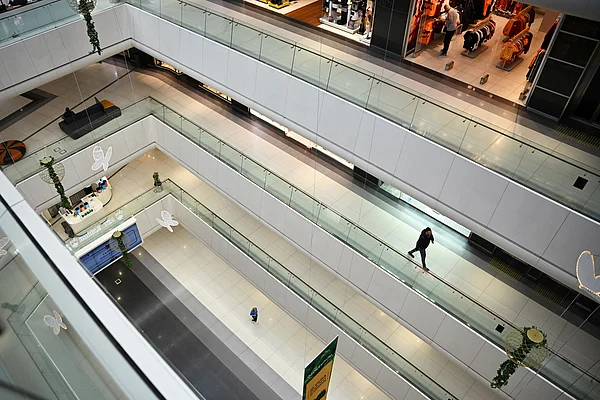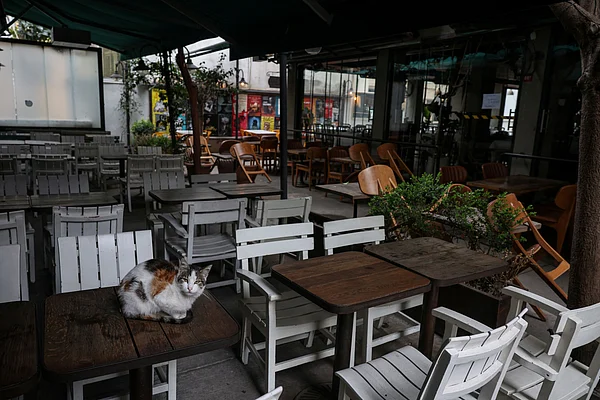
People walk by newsstand, amid the opposition’s calls for a mass economic boycott following the arrest of Istanbul Mayor Ekrem Imamoglu that sparked nationwide protests in Istanbul, Turkey April 2, 2025. REUTERS/Louisa Gouliamaki Purchase Licensing Rights
| Published April 2, 2025
Turkey’s government has strongly denounced opposition-led calls for a nationwide “No Shopping” day, branding the move as an attempt to undermine economic stability and create public unrest. The initiative, promoted by opposition parties and activist groups, urges consumers to abstain from shopping for a day in protest against rising inflation and economic hardships.

A view of empty shopping street, amid the opposition’s calls for a mass economic boycott following the arrest of Istanbul Mayor Ekrem Imamoglu that sparked nationwide protests in Istanbul, Turkey, on April 2, 2025. . Photos by Reuters
Background of the Protest
The “No Shopping” campaign emerged as a response to growing public frustration over soaring prices and economic difficulties in Turkey. Inflation has significantly impacted household incomes, with essential goods becoming increasingly unaffordable for many citizens. The opposition argues that the boycott serves as a symbolic demonstration against the government’s economic policies, which they claim have exacerbated financial instability.
Government’s Reaction
Officials from President Recep Tayyip Erdoğan’s administration have condemned the boycott, arguing that it damages businesses and the economy. Turkish Minister of Trade Ömer Bolat criticized the campaign, stating, “Encouraging people not to shop is an irresponsible act that harms our local businesses and economy at a time when we should be working together to strengthen financial stability.”
The ruling Justice and Development Party (AKP) has accused opposition leaders of using economic hardships for political gain, asserting that the government is actively implementing measures to curb inflation and support struggling households.

People walk through a shopping mall, amid the opposition’s call for a mass economy boycott to include a complete halt to shopping following the arrest of Istanbul Mayor Ekrem Imamaglu, in Istanbul, Turkey, on April 2, 2025.. Photos by Reuters
Public Response and Economic Impact
Public reaction to the campaign has been mixed. Some citizens view the boycott as a necessary act of resistance, believing it will pressure the government to address inflation more effectively. Others, particularly small business owners, worry about the potential economic consequences, arguing that a day-long shopping strike could hurt local retailers already struggling to stay afloat.
Economic analysts suggest that while a one-day boycott may not significantly impact the overall economy, it could serve as a symbolic expression of public dissatisfaction. If the movement gains traction, it may lead to broader discussions on economic reforms and policy adjustments.

A cat sits at closed cafe, amid the opposition’s calls for a mass economic boycott following the arrest of Istanbul Mayor Ekrem Imamoglu that sparked nationwide protests in Istanbul, Turkey, on April 2, 2025.. Photos by Reuters
Conclusion
As Turkey grapples with economic challenges, the “No Shopping” campaign has highlighted the deepening divide between the government and opposition forces. Whether the protest will lead to tangible policy changes remains uncertain, but it underscores the growing frustration among Turkish citizens over economic difficulties. Moving forward, the government’s ability to address these concerns will play a crucial role in shaping public sentiment and political dynamics in the country.
SOURCES: REUTERS – Turkey denounces opposition calls for a day of no shopping





Be the first to comment